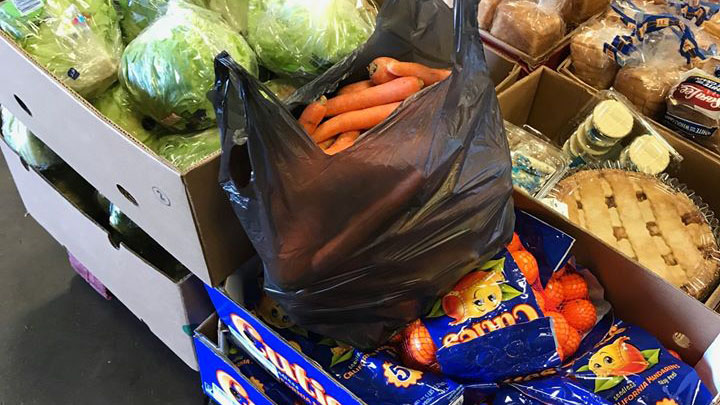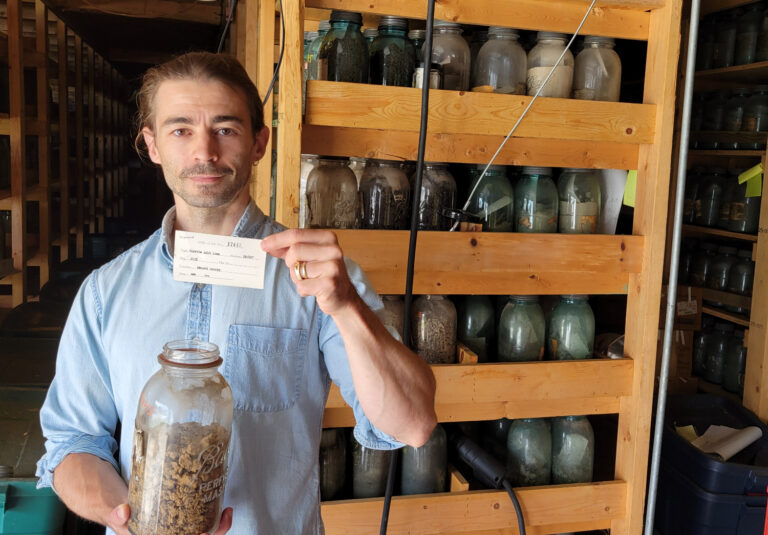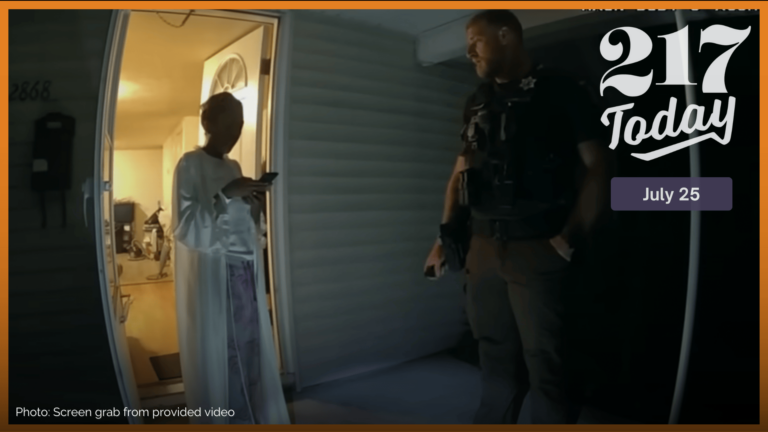Due to the COVID-19 pandemic, more Illinoisans are turning to their local food pantries for help. Meanwhile, with grocery store shelves emptied out and the food chain disrupted, food banks are doing their best to meet the increased demand.
Food banks typically act as the middleman in securing food from suppliers and distributing them to smaller hunger-relief charities, like food pantries, churches or schools. They often source food in different ways, from accepting donated items to buying food from retailers.
“We have an increased demand with a little bit less product availability,” says Gavin Gordon, Assistant Inventory Manager for Eastern Illinois Foodbank, which supplies food to 18 different counties in central Illinois.
Gordon says the food bank sources product in three different ways: from donations, from the federal government and from purchasing directly from retailers. He says the problem has been in retail purchases.
“Two months ago, I could’ve gotten a truckload of just about any type of product I wanted at any time delivered within maybe a week or two,” he says. “At this point, I might not even be able to get a truckload of some product at all for the next several months.”
He says the problem is that Eastern Illinois Foodbank purchases from the same companies that are struggling to supply for grocery stores. Gordon says he’s heard from a few other area food banks that are also seeing an increase in demand and a decrease in supply.
However, Gordon says there has been a slight uptick in donations from local restaurants that have had to limit or shut down service entirely.
“We’ve had a lot of what we call off-the-road donations, so just a random truck saying, ‘This restaurant doesn’t need these six pallets anymore, they only need two pallets, where are we going to take them?’ Typically they take them to us,” he says.
Overall, Gordon says they’re still making it work “with a lot of extra effort… paying attention to everything the best we can as we go along to make sure we’re not running out of stuff.”
If you want to help, Gordon suggests making a food or monetary donation to your local food pantry.







